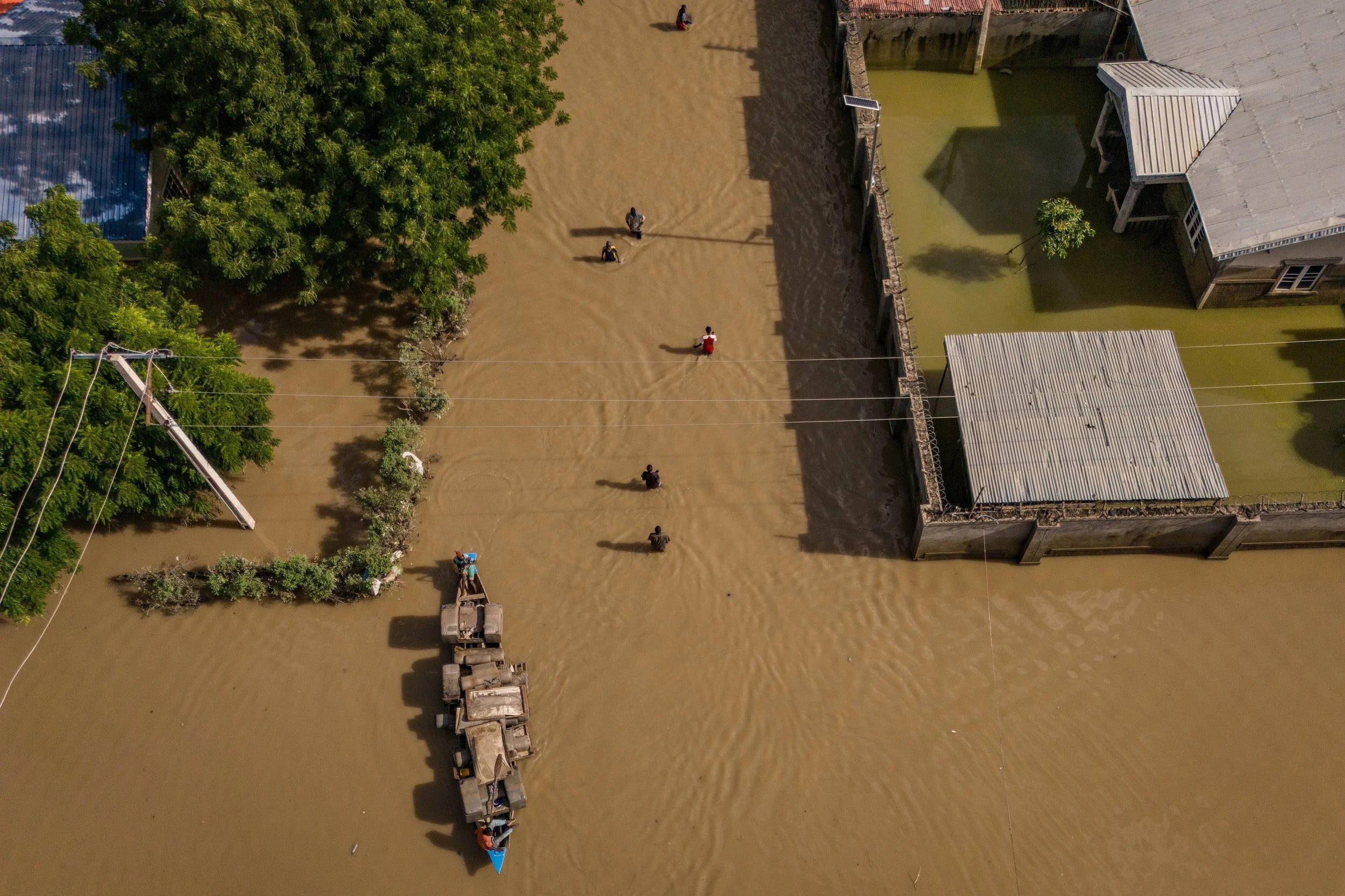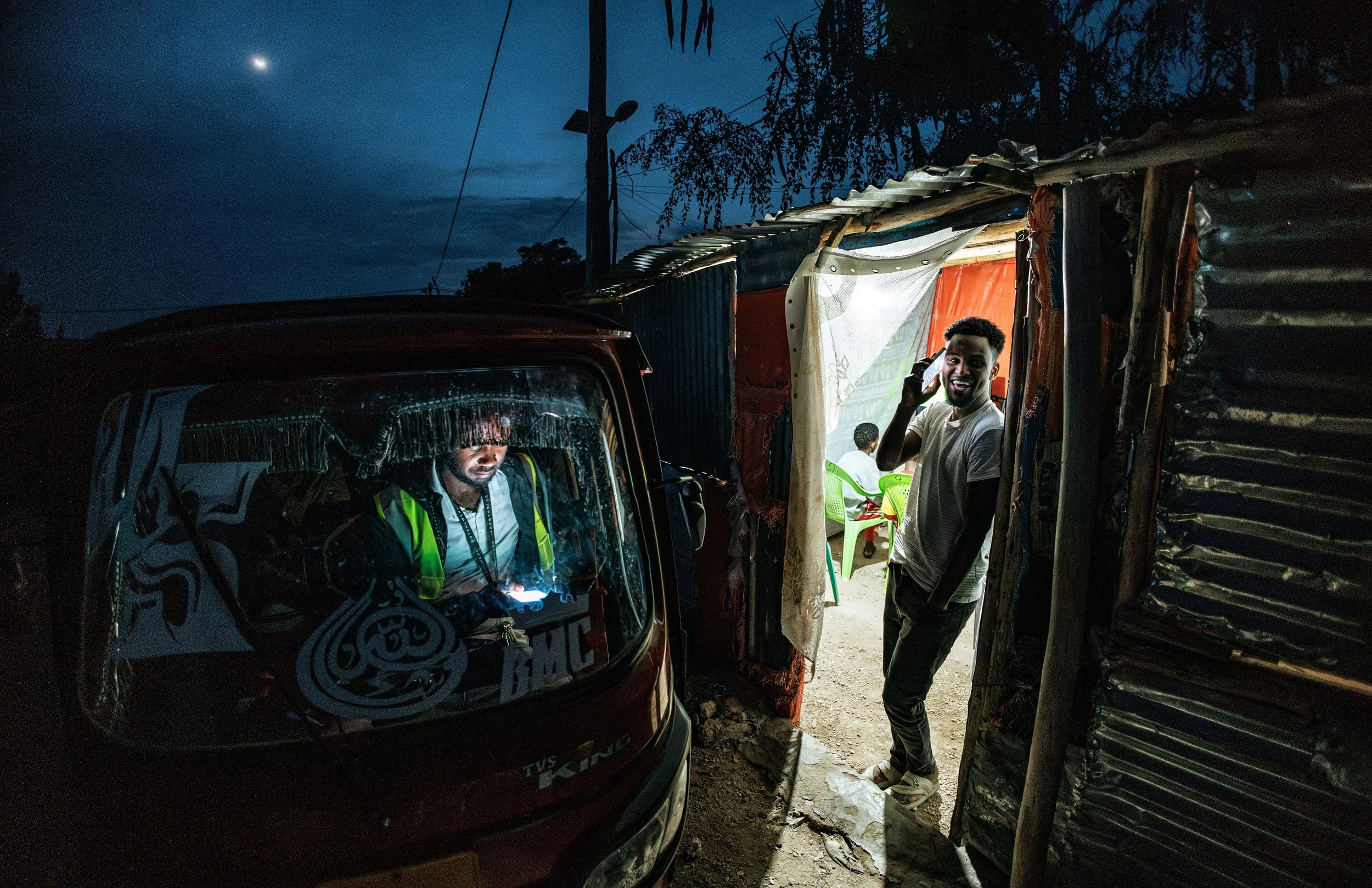Pilot Launch | BlockBima: Reducing climate vulnerability through insurance-embedded MSME loans
Image courtesy of Mercy Corps
Mercy Corps Ventures, in partnership, with BlockBima, Fortune Credit, Shamba Network, and RiskShield, has launched a new pilot to test the use of blockchain-powered parametric insurance embedded within microloans to protect MSMEs against climate shocks.
This post is the first in a two-part series; the second will share key insights after the pilot is completed. Written by Njeri Muhia, Pilot Manager at Mercy Corps Ventures.
In brief
In Kenya, Mercy Corps Ventures is testing the use of blockchain-powered parametric insurance embedded within microloans to protect MSMEs from increasing climate shocks and risks.
The solution applies several innovative approaches to deliver an impactful offering: data-driven triggers, a parametric design, severity tiers, Blockchain execution, and direct balance reduction.
By tying loans to an automated climate cover, we aim to turn microfinance into a true adaptation tool. With success, we’ll plan to support the scaling of this model across other African markets.
Image courtesy of Mercy Corps
The problem
Sub-Saharan Africa’s micro, small, and medium enterprises (MSMEs) — numbering over 44 million and accounting for up to 80% of all jobs — remain chronically under-insured against escalating climate shocks. This is especially alarming considering that Africa is warming faster than the global average. By 2030, an estimated 118 million Africans may face severe drought, while extreme weather events are becoming more frequent.
While women own roughly one-third of these businesses, they face greater barriers to resilience financing and adaptation, and often have fewer resources. This leads to a “triple differential” vulnerability to climate shocks, where women (1) are often more sensitive to climate risks due to their concentration in certain sectors and types of enterprises; (2) face additional barriers to adaptation in the business environment, including access to finance and limited financial literacy support; and (3) are often simultaneously on the frontline of managing climate risk at household levels.
“When the heavy rains come, we lose everything… The loans that normally help us restock become a burden because we can’t generate the income to repay them.”
Mercy, Female Entrepreneur (Pilot Candidate)
A Fortune Credit client in a market
At the same time, digital lenders have seen loan default rates soar — from 15 to 20% in 2020 to nearly 40% by 2024 — as climate-driven income shocks intensify borrowers’ vulnerability and force tighter credit terms for those most at risk. A 2021 study found that only around 17% of SMEs in Kenya accessed loans for climate adaptation and many were forced to downsize or sell assets to cope.
The pilot
Mercy Corps Ventures has partnered with BlockBima, Fortune Credit, Shamba Network, and RiskShield to launch a new pilot testing the use of blockchain-based parametric insurance to protect MSMEs in Kenya against the negative impacts of excessive rainfall.
The pilot embeds parametric rainfall insurance directly into Fortune Credit’s 5-day digital loans. When excess rainfall occurs during the loan period, the insurance automatically reduces the borrower’s repayment obligation, without requiring any claims filing or assessment process.
Each eligible loan includes an insurance premium that is pooled into a smart contract on a public blockchain. The solution applies several innovative approaches to deliver an impactful offering for climate-vulnerable MSMEs:
Data-driven triggers: Shamba Network’s AI-enhanced satellite data monitors rainfall in near real-time across all covered areas.
Parametric design: When rainfall exceeds pre-defined thresholds, payouts are triggered automatically.
Severity tiers: The greater the rainfall, the greater the percentage of the loan that is covered.
Blockchain execution: Smart contracts process claims and deliver payouts quickly and with verifiable transparency.
Direct balance reduction: Borrowers receive an SMS notification of their reduced repayment amount.
Key partners and their roles:
BlockBima: A web3 climate insurance platform that builds and runs the parametric smart contract and risk pool.
Fortune Credit: A Kenyan microfinance institution that issues the loans. Fortune receives the insurance payouts and applies them to borrowers’ accounts (reducing their loan balance or extending new credit).
Shamba Network: A Nairobi-based data oracle that collects high-resolution weather and ecological data. Shamba feeds over 30 satellite and sensor data streams into the blockchain every day, powering the parametric triggers.
RiskShield: An actuarial consultancy that designed the index insurance, setting the trigger thresholds (e.g. rainfall shortfalls) and pricing for the product.
“Climate change will continue to pose increasing challenges for micro-enterprises… But with innovations like parametric insurance embedded into everyday financial services, we can ensure that a heavy rainfall doesn’t wash away someone’s livelihood and financial future.”
Kennedy Nganga, Co-Founder BlockBima
Learning agenda & key hypotheses
Access to embedded insurance and microcredit will build climate resilience by helping MSME borrowers better prepare for, adapt to, and recover from climate-related shocks and risks. We will measure:
% of borrowers who feel more resilient to climate change after access to loans
% of borrowers who use the credit to invest in climate adaptation solutions
% average change in credit scores of borrowers
Embedding climate insurance within microloans will make affordable credit more accessible for MSMEs while improving the willingness of lenders to provide credit to climate-vulnerable businesses. We will measure:
# of total first-time Fortune Credit borrowers (broken down by gender, % who would otherwise not qualify for loan)
# of loan repayments (and $ value) covered by insurance payouts
Comparison of actual default rates with expected rates for the demographics
The use of web3 and smart contracts will result in better operational efficiency and faster claim payouts to MSMEs. We will measure:
% reduction in claim processing time (baseline: 30 days)
% reduction in operational costs
Our Learning Questions
Does the insurance-embedded loan help maintain repayment during extreme weather events?
How do borrowers (especially women and youth entrepreneurs) perceive and value the embedded insurance cover?
Image courtesy of Mercy Corps
Looking ahead
This pilot could showcase how web3 technology might help build resilience for underserved businesses. By tying loans to an automated climate cover, we aim to turn microfinance into a true adaptation tool. If our hypotheses hold, we plan to support the scaling of this model across other African markets and embed parametric insurance into additional digital credit products.
Stay tuned for updates, evidence, and insights on our other Mercy Corps Ventures pilots responsibly testing web3 solutions for unbanked and underbanked populations in emerging markets.




